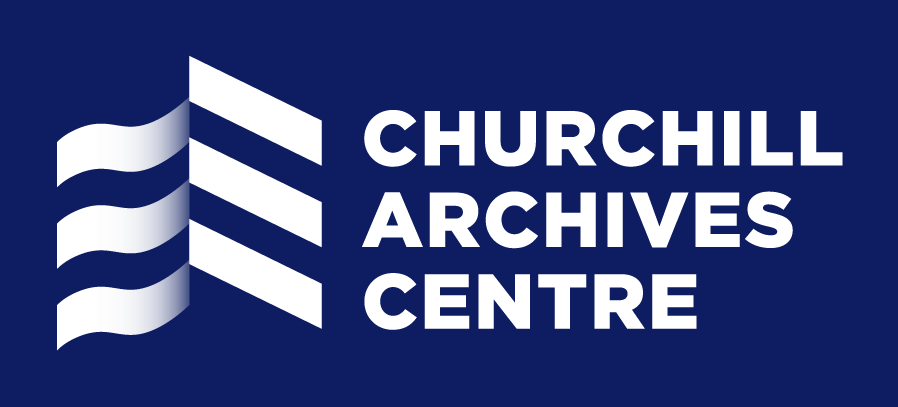
- This event has passed.
Bob Edwards centenary: His life, work and legacy
26 September, 2025 @ 5:45 pm – 7:30 pm
Join us for this panel session on Robert Edwards’ Life and Legacy chaired by Roger Highfield (Director of the Science Museum Group).
The panel will feature Emma Barnett (British Broadcaster and Journalist with a young IVF child), Fiona Bennett (former Executive Editor of Reproductive BioMedicine Online journal which Bob started), Louise Brown (the first IVF baby), Professor Sir Richard Gardner (Bob’s PhD student and Oxford University Lecturer), Dr Jenny Joy (Bob’s daughter and creator of his archive), and Dr Mike Macnamee (former CEO of Bourn Hall Clinic who knew Bob well)
A display of copies from archives relating to the history of IVF will be available to view before and after the panel session. There will also be a drinks reception for all attendees following the panel session.
The Life and Legacy panel session at Churchill College is part of a two-part conference, and an earlier session on Science and clinical practice organised by the Loke Centre for Trophoblast Research will take part earlier in the day. For more information and to register for either, or both, sessions see our event registration page.
The Bob Edwards centenary conference is supported by Cambridge Reproduction.


A Fellow of Churchill College Cambridge from 1979, having been a Senior Member from 1974, Sir Robert (Bob) Edwards stands as one of the most influential scientific figures of the 20th century. Alongside Patrick Steptoe and Jean Purdy, he carried out basic and clinical research that led to the successful implementation of in vitro fertilisation as a treatment of infertility in 1978. The three established Bourn Hall Clinic in Cambridge in 1980, the world’s first IVF clinic.
Bob Edwards was born in Batley, West Yorkshire, in 1925 to a working-class family. He stands as one of the most influential scientific figures of the 20th century. A charismatic and engaging Yorkshireman, his unwavering determination, farsightedness, and intellectual rigour brought about a revolution in infertility treatment, earning him the Nobel Prize for Physiology or Medicine in 2010.
After serving in the army and completing a degree in zoology at the University of Bangor in 1951, he moved to the Institute of Animal Genetics at the University of Edinburgh, where he obtained a doctorate in genetics under Alan Beatty in 1955. His research work here was focussed on understanding chromosomal errors in egg maturation, leading him to collaborate with his future wife, Ruth Fowler, who would also become his lifelong scientific collaborator. Ruth was a geneticist and was descended from a line of distinguished scientists and her highly significant research work in the field spanned more than three decades. After spells of working in California, London, and Glasgow, Bob accepted a fellowship in Cambridge in 1963. It was during these early days in Cambridge that human egg maturation and its anomalies, and achieving human fertilisation in vitro, came to dominate his interests. He was a prolific writer during this time, with his publications including a 1965 paper in The Lancet that laid out the course of IVF studies for the next two decades and a 1969 paper in Nature with Barry Bavister and Patrick Steptoe describing the first fertilisation of a human egg in vitro.
Bob was also a strong advocate for public understanding of science, particularly its role in addressing infertility and genetic disorders. His insights on reproductive bioethics and his key role in founding the European Society for Human Reproduction and Embryology and running its journals solidified his reputation as a key figure in reproductive medicine. In 2000, at the age of 75, he launched Reproductive BioMedicine Online, a journal that emphasised rapid publication and the exploration of controversial topics. His tireless energy and indefatigable interest in scientific advances meant he was still attending conferences, promoting his journal and giving lectures into his early eighties. He died in 2013 aged 87 after a long illness.
Roger Highfield is the Science Director of the Science Museum Group, where he worked on the exhibition IVF: 6 Million Babies Later, and a visiting professor at the Dunn School, Oxford, and UCL. Before, he joined the Group, he was the editor of New Scientist and Science Editor of The Daily Telegraph, where he interviewed Bob Edwards several times. A member of the UKRI-Medical Research Council, Roger has written ten popular science books, including After Dolly (with Ian Wilmut) and The Dance of Life (with Magda Zernicka-Goetz). www.rogerhighfield.com

Emma Barnett is an award-winning broadcaster, journalist and author. She joined the Today programme, the BBC’s flagship breakfast news show, in May 2024 – as she assumed a wider role across BBC TV and News, fronting documentaries and exclusive interviews.
Until April 2024, Emma was the presenter of Woman’s Hour on BBC Radio 4, the longest running women’s programme in the world – a show she took to become the BBC’s most downloaded podcast. She has twice been named the UK’s best speech radio presenter by the ARIAS. Known for her agenda-setting interviews and scoops delivered in her warm but forensic manner, Emma has welcomed queens and prime ministers, pop stars and political prisoners to talk with her on the microphone – with many others along the way.
She previously presented BBC’s Newsnight and her eponymous daily, three hour BBC 5 Live radio programme.
She wrote the books ‘Period. It’s About Bloody Time’ and ‘Maternity Service’, as well as writing a bi-weekly newspaper column for The iPaper.
Emma also presented a global interviews programme on Bloomberg TV – with high profile one-to-one interviews with international figures from across the world of politics, sport, culture, entertainment and technology.

Fiona Bennett was one of the small team which founded Reproductive BioMedicine Online in 2000. She arrived at this point via a B.Sc. degree with Honours in Genetics from Edinburgh University, a Commonwealth Scholarship to the University of British Columbia, an M.Sc. degree in plant host–parasite relationships and jobs as a plant pathologist at both the Scottish Plant Breeding Station near Edinburgh and the Plant Breeding Institute in Cambridge. Following a 6-year career break for her three children, she took on a part-time editorial role working with Bob Edwards on the journal Human Reproduction at Bourn Hall. Ten years later in 2000, by now almost full-time, Bob asked her to join him as Executive Editor of RBMOnline – his new, revolutionary publishing venture. Her role involved setting up all office systems, quality control of content, timely publication of papers online and in print, as well as travelling widely with Bob to conferences and meetings. Fiona retired from active involvement in RBMOnline in 2010.

Louise Brown was born on 25 July 1978 amid a media frenzy around the world and called “the test tube baby”. Her birth was the result of the pioneering work of Sir Robert Edwards and Patrick Steptoe and their team, including research assistant and embryologist Jean Purdy. It also marked the conclusion of a 10 years trying to conceive by her parents John and Lesley Brown.
Today Louise works in a bakery as well as travelling the world meeting people in the ever-growing fertility sector.

Professor Sir Richard Gardner studied Natural Sciences at St Catharine’s Cambridge before doing a PhD in the Physiological Laboratory with Bob Edwards. In 1973 he was appointed to a University Lectureship in Zoology at Oxford where, from 1978 until his retirement in 2008, he held a Royal Society Research Professorship. His research interests include investigating the lineage and patterning of cells in early mammalian development and the biology and properties of the various types of stem cells derived from early embryos.
Gardner was awarded the Zoological Society’s Scientific Medal in 1977 and elected to the Royal Society in 1979. He received the March of Dimes Prize in Developmental Biology in 1999, the Royal Society’s Royal Medal in 2001, and a Knighthood in 2005. Gardner gave the British Fertility Society’s Patrick Steptoe Memorial Lecture in 2015 and was awarded the British Society for Developmental Biology’s Waddington Medal in 2018. For many years he chaired the Royal Society’s working group on ‘human embryo research’, and in 2006-8 served as President of the Institute of Biology (now the Royal Society of Biology).

Dr Jenny Joy is the second of Bob Edwards’ five daughters. She was involved in his working life from a young age, first by helping with the references for his landmark book Conception in the Human Female, and then by two periods of work at Bourn Hall (first as an auxiliary nurse when it first opened, and later helping in the labs during the first attempts at micro-manipulation). Following his death in 2013, she spent many months cataloguing all the working papers that he had stored at his home at Duck End Farm, and these today form the bulk of his archive.
Jenny was instrumental in getting one of Edwards’ Oldham incubators to the Science Museum, and was a Trustee of the Edwards and Steptoe Research Trust. She also takes any opportunity to promote her father’s work to ensure he is not forgotten. More recently she has focussed on her mother’s huge contribution to this work which has not previously been widely recognised.

Dr Mike Macnamee joined the Bourn Hall team as an endocrinologist in 1985. He became the Vice President of pre-clinical development for Serono after its acquisition of Bourn Hall and led the successful management buyout in 2005 regaining Bourn Hall’s independence.
Mike worked with Bob Edwards and Patrick Steptoe throughout the 1980s to help develop IVF into a robust clinical therapy.


